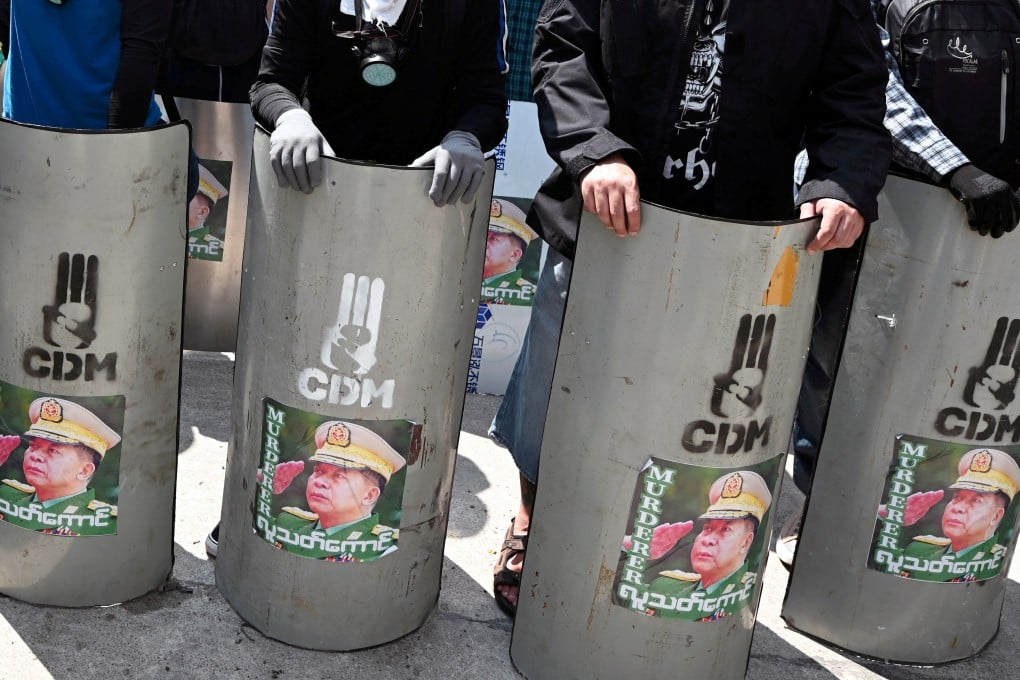Advertisement
Call for ‘defensive war’ against Myanmar’s junta sparks alarm, even as young citizens cautiously back revolt
- The international community has expressed concerns over the declaration, including the difficulty of distributing assistance during a bloody civil war
- While the country’s youth have welcomed the chance to fight back, they remain fearful of the bloodbath that could follow
Reading Time:4 minutes
Why you can trust SCMP

The international community has expressed alarm over the declaration of a “people’s defensive war” by Myanmar’s anti-junta forces, even as interviews with citizens weary of the military’s brutality suggest there is support on the ground for the revolt.
Tuesday’s call to arms by Duwa Lashi La, the acting president of the National Unity Government (NUG), comes just days before a United Nations committee makes a highly awaited decision on who can represent Myanmar at the world body.
The declaration of war also coincides with confusion over whether junta chief Min Aung Hlaing has accepted a proposal for a four-month ceasefire made by Erywan Yusof, the special envoy from the Association of Southeast Asian Nations (Asean) to the violence-wracked nation.
Erywan, the de facto top diplomat of Brunei, told the Kyodo news agency that a ceasefire had been agreed, but a junta representative on Monday told The Irrawaddy that this was not the case.
Advertisement
Indonesia was among the nations to issue an immediate response to Duwa Lashi La’s call for a defensive war, which was made via a Facebook video.
Teuku Faizasyah, Jakarta’s foreign ministry spokesman, urged all parties to “refrain from open conflict”, adding that Asean was finalising preparations to distribute humanitarian assistance.
Advertisement
“This assistance cannot be distributed if there is no sound and secure situation on the ground,” he said.
Advertisement
Select Voice
Select Speed
1.00x